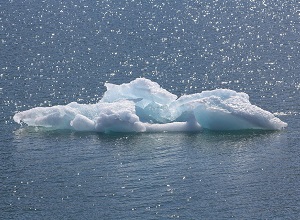Another month, another view on climate change.
Happily however this one, for once, does not advocate apocalyptic cost scenarios.
Indeed the report from the UN’s Intergovernmental Panel on Climate Change (IPCC) has countered common assumption in claiming that tackling climate change can be done without severely impacting economic growth.
That said the report follows more traditional lines where it is concerned with the impact of and need to curtail global warning.
Weather, shortages and war
The report highlights the need to cut fossil fuel use to nigh on zero by the end of the century or the world faces more extreme weather more often, undermined food security globally and an increased proliferation of wars with the report suggesting:
“Climate change can indirectly increase risks of violent conflicts by amplifying well-documented drivers of these conflicts such as poverty and economic shocks.”
With global temperatures have risen by nearly 1ºC since the industrial revolution the focus is now on keeping that rise below the 2ºC threshold.
Crucially, unlike previous studies, the report, introduced by Dr Rajendra Pachauri, said action, although needed instantly and in unison, requires only a 0.06% fall in global consumption in order to be delivered. Pachauri said:
“We have the means to limit climate change. The solutions are many and allow for continued economic and human development. All we need is the will to change.”
As well as the almost total abandonment of burning fossil fuels, the report lays plain that the world must also foster a much greater role for renewable energy so as to deliver 80% of the world’s electricity by 2050, up from the 30% today.
The EU only last month agreed to cut greenhouse gas emissions by 40% by 2030, compared with 1990 levels, still however way short of the target needed according to the IPCC. The report underlined:
“Delaying additional mitigation to 2030 will substantially increase the technological, economic, social and institutional challenges associated with limiting the warming over the 21st century to below 2ºC relative to pre-industrial levels.”
Severe, pervasive and irreversible
The IPCC report, the fifth of its kind is intended to underpin the gathering of world leaders in Paris in 2015 for the latest climate change talks and pulls no punches in its assessment of the “severe, pervasive and irreversible” impacts of global warming and its causes:
“Human influence on the climate system is clear, and recent anthropogenic emissions of greenhouse gases are the highest in history.
“Each of the last three decades has been successively warmer at the Earth’s surface than any preceding decade since 1850. The period from 1983 to 2012 was likely the warmest 30-year period of the last 1,400 years in the northern hemisphere.”
Indeed the IPCC report that global temperatures could see a rise of 5ºC if measures to tackle carbon emissions are not taken quickly and effectively.
No ambiguity
Reflecting on the report UN Secretary General Ban Ki-Moon said:
“Science has spoken. There is no ambiguity in their message. Leaders must act. Time is not on our side.
“When your child is sick with a high temperature, you have to take all the medicine.
“Massive, urgent and immediate action [is required]”
Whilst Ed Davey, Secretary of State for Energy and Climate Change, said:
“This is the most comprehensive, thorough and robust assessment of climate change ever produced.”
Professor Myles Allen of Oxford University, one of the report’s contributors warned:
“We can’t afford to burn all the fossil fuels we have without dealing with the waste product which is CO2 and without dumping it in the atmosphere.
“If we can’t develop carbon capture we will have to stop using fossil fuels if we want to stop dangerous climate change, that is a very clear message that comes out of the IPCC reports.”
Lord Nicholas Stern, a professor at the London School of Economics called the latest IPCC report:
“[The] most important assessment of climate change ever prepared [where] further delays in tackling climate change would be dangerous and profoundly irrational.
“The reality of climate change is undeniable, and cannot be simply wished away by politicians who lack the courage to confront the scientific evidence”
The last word however goes to Sam Smith, of the WWF who summarised the issue thus:
“The big change in this report is that it shows fighting climate change is not going to cripple economies and that it is essential to bringing people out of poverty. What is needed now is concerted political action.”
